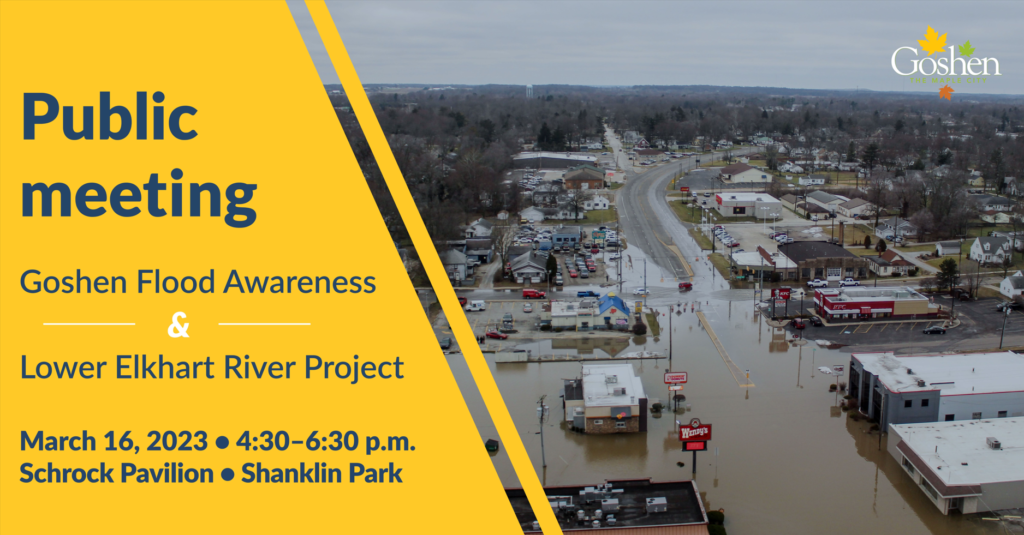
The City of Goshen will host an open-house Public Flood Awareness meeting on Thursday, March 16, from 4:30 to 6:30 p.m., at Schrock Pavilion, Shanklin Park.
This will be a drop-in event to talk with representatives from various City departments, as well as with other county and regional organizations. The conversation will cover flood issues and information about the Lower Elkhart River Project. Food will be provided.
Minor flooding in and around Goshen over the past weeks has reminded us of the historic flooding of 2018. Since late February of this year, floodwater has spilled into the lowest portions of Goshen’s floodplains – spaces occupied primarily by public park land, such as Rogers Park, Abshire Park, Shanklin Park, and Mullet Park.
The major difference between 2018 and 2023 is that five years ago the temperatures were quite cold before a warm-up, with frost in the ground, and several inches of snow above; rain on top of melting snow, on top of the frozen ground meant that waterways were quickly inundated. This year, the ground hasn’t been frozen, and more precipitation has been able to infiltrate, resulting in lower flood levels.
In Goshen, natural floodplains have performed very well. For hundreds, and even thousands of years, the constant flow of water have formed the floodplains along our waterways, and are the natural overflow when volume exceeds river- and streambeds. Floodplains allow water to “slow down, spread out, and soak in”, essential actions for dealing with flood events.
The Indiana Climate Change Impact Assessment from Purdue University projects increasing precipitation in Northern Indiana over the coming decades (https://ag.purdue.edu/indianaclimate/indiana-climate-report).
The projections show this increase to be most dramatic during the late-winter and early-spring months – as currently – which indicates a potential for more flood events to occur. The Public Flood Awareness meeting will be an opportunity to hear what actions the City has been taking to mitigate and adapt to flood issues, to revisit the City’s Flood Resilience Plan, and to give input.
